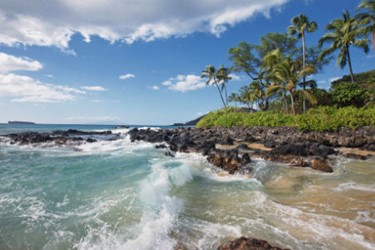Maui Officials Vote To Withdraw Case Over Clean Water Act Dispute


Following months of debate, stewards of one of the world’s most pristine source water reputations have decided to withdraw a major Clean Water Act dispute from consideration by the Supreme Court.
“The Maui County Council voted 5-4 … to settle County of Maui v. Hawai’i Wildlife Fund, a case with big implications for the scope of the Clean Water Act,” according to Bloomberg Environment. “The panel directed county officials to retreat from the Supreme Court case, which is scheduled for Nov. 6 oral arguments, and follow a settlement agreement reached during an earlier stage of litigation.”
The dispute stems from disagreement over whether Maui needs to obtain Clean Water Act permits to operate disposal wells where treated wastewater mixes with groundwater and ultimately ends up in the Pacific Ocean. While the groundwater is not a federally regulated waterway that would require such a permit, the Pacific Ocean is. In 2018, a Court of Appeals sided with the environmentalists who argued that Clean Water Act permits are necessary, and the Supreme Court was set to review that ruling soon.
If the county ultimately moves forward with the previously settled terms, it will incur a penalty and will be forced to make wastewater system upgrades and obtain a Clean Water Act permit.
“The agreement required Maui to invest $2.5 million in wastewater reuse systems, pay a penalty and work to secure a permit,” per Bloomberg Environment.
Even though the county council voted to withdraw the case, the debate is likely still not over, as there appears to be disagreement over whether the county council has the authority to make this decision or whether it lies with Mayor Michael Victorino, who has been an outspoken opponent of agreeing to the settlement.
“Maui County Mayor Michael Vicotrino said … if the county settles a lawsuit over wastewater injection wells before the U.S. Supreme Court … it could cost the county more than $800 million in fines, required improvements and legal fees,” according to The Maui News. “‘All this for an uncertain impact on the nearshore environment, which receives other sources of pollution, such as fertilizer residue, land-based sediment and cesspools,’ he continued.”
To read more about the rules surrounding wastewater injection, visit Water Online’s Wastewater Regulations And Legislation Solutions Center.
